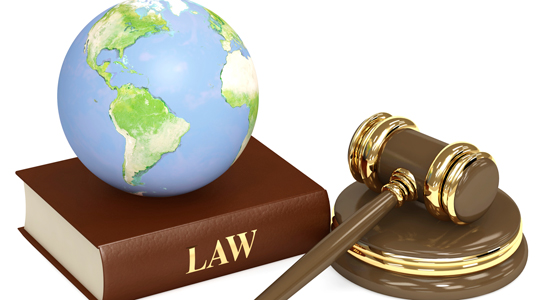 An environmental lawyer is an attorney that focuses on litigation having to do with a broad range of environmental concerns. Examples include air and water quality, climate change, wildlife protection and biodiversity, and chemicals and pesticides.
An environmental lawyer is an attorney that focuses on litigation having to do with a broad range of environmental concerns. Examples include air and water quality, climate change, wildlife protection and biodiversity, and chemicals and pesticides.
The career outlook for an environmental lawyer is keen. They make on average $60-$103 thousand a year.
An environmental attorney may also deal with issues like environmental impact planning, and sustainable growth and development. An environmental lawyer often works with the general public affected by environmental issues in individual litigation or class action lawsuits, or may work for government agencies, corporations, or non-profit organizations.Practicing law involves much more than the emotionally-charged trial proceedings of courtroom dramas. Lawyers spend most of their time in the office—not in court—since most cases, especially in environmental law, are settled before trial. Attorneys work mostly independently, with help from interns, secretaries and/or paralegals, but they’ll usually work in teams for high-profile cases. Since they often need to complete large, time-sensitive projects, attorneys clock in well over 40 hours per week, with many working as many as 80 hours per week. Occasionally they’ll travel for on-site visits or interviews. Environmental lawyers use legal skill and training to develop policies and engage in litigation that prevents environmental damage, results in environmental clean-up, or compensates people for harm they have suffered as a result of environmental contamination. Environmental attorneys play a key role in the system of checks and balances to prevent government and big business from engaging in practices that undermine the natural environment, and harm people in the process. Examples of cases handled by an environmental attorney include cases involving toxic mold in homes, builder negligence, illnesses resulting from companies’ negligence or willful contamination of water and air, and litigation against the government to clarify or compel environmental regulation. Environmental law combines knowledge in law and legal procedures with knowledge and passion for environmental concerns. If you enjoy engaging in research and writing, public speaking and debate, and working with clients one-on-one to address environmental concerns, then you may enjoy a career as an environmental lawyer. An environmental attorney must also be good at processing and synthesizing new information, and must have a solid background in understanding environmental concerns.
What can you do to be a more competitive candidate?
- Look for every chance to build up legal skills. Participate in moots. Volunteer for legal aid. Speak at public meetings on matters of public interest. Help your neighbour take a small claims case to court. Volunteer to do legal research for duty counsel.
- Volunteer with environmental non-governmental organizations (NGOs). Dedicate yourself to thoroughly understanding an issue that they work on, and take every opportunity to help out. If you are lucky, they may let you help research or draft policy papers, write articles, sit on committees or work on public consultations;
- Submit good articles on environmental topics to academic journals and legal publications.
- Get involved with the environmental law students group at your school. (If there isn’t one, start it!) As a group, you can take on bigger projects on behalf of E-NGOs in your community. Consider approaching an E-NGO and offering to undertake a law or policy related project on their behalf;
- Join the board of an E-NGO. Many small organizations have difficulty attracting board members who have the time and energy required. This can be a great way to meet people in the environmental sector and to learn from those who have seen the sector go through some very big changes over the last 40 years.
And do study those who have the skills you want. If you want to be a litigator, spend as much time as you can in court. Make notes, analyse what you think works and why.
And if you don’t find the job now, don’t give up.
Even if you end up practicing in another area of law, or working in some other capacity, you will have opportunities to work for environmental protection. Lawyers in any practice area can bring strong analytical skills and an articulate voice, as well as financial support, to the environmental issues that affect their organization and their community. And sometimes, the job of your dreams will show up years later, if you keep the door open while you’re building your skills.

